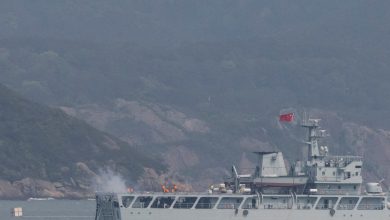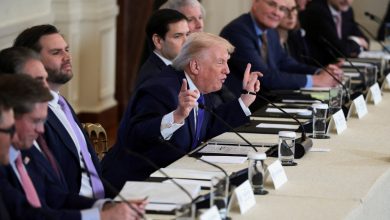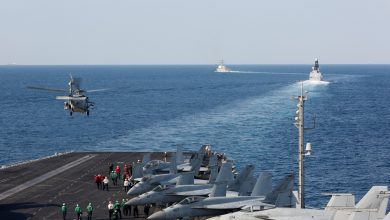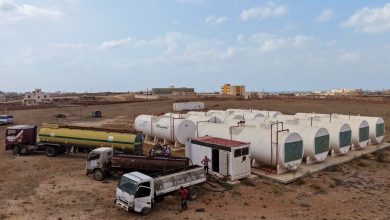Washington, D.C. – Salah Eddine Taleb, the Governor of the Bank of Algeria, has warned that persistent geopolitical tensions pose a significant threat to the global economic outlook. His remarks were made during the 5th meeting of the International Monetary and Financial Committee (IMFC) in Washington, held as part of the annual meetings of the World Bank Group and the International Monetary Fund (IMF).
Speaking on behalf of Algeria, Ghana, Iran, Libya, Morocco, Pakistan, and Tunisia, Taleb highlighted that while global economic indicators show some positive signs, the risks remain severe. He stated: “Although global forecasts offer some encouraging prospects, the balance of risks facing the global economy has deteriorated since our last meeting.”
Impact of Regional Conflicts
Taleb expressed deep concern about the escalating aggression by the Zionist entity against Palestine and Lebanon, describing it as a significant threat to regional and global stability. He added: “The regional risks arising from the rapid escalation of aggression have reached unprecedented levels not seen in decades.”
The humanitarian disaster unfolding in Palestine and Lebanon, characterized by massive loss of life, displacement, hunger, disease, and suffering among children, was singled out as having far-reaching and generational consequences. Taleb emphasized: “Every war brings tragedy, but the aggression against Palestine and Lebanon has a unique and unparalleled impact that will affect future generations.”
He stressed that immediate cessation of hostilities and achieving sustainable peace are essential not only for the well-being of the affected populations but also for ensuring global prosperity and long-term economic and social stability.
Challenges Facing Low-Income and Vulnerable Countries
Taleb also addressed the precarious situation of low-income and economically vulnerable countries struggling amid an unstable global context and recurrent crises. He pointed to challenges such as food insecurity, poverty, climate disasters, and complex developmental issues, which are further exacerbated by high levels of debt and rising borrowing costs.
He cautioned that the decline in foreign aid and concessional loans from traditional sources is significantly slowing progress toward achieving the 2030 Sustainable Development Goals (SDGs).
In light of these challenges, Taleb urged donors and international financial institutions to maintain their commitments to these vulnerable economies. He praised the IMF’s initiative to enhance global efforts in addressing liquidity shortages and ensuring financing for sustainable development objectives.
Key Priorities for Economies in Transition
The Governor of the Bank of Algeria emphasized the importance of economic diversification and structural reforms. Additionally, he noted that poverty reduction, narrowing income disparities, and managing the growing influx of political, economic, and climate refugees are among the top priorities for these countries. He warned that these pressures generate social tensions and high costs, posing risks to economic stability.
He also called for expanding the scope of the IMF’s Resilience and Sustainability Trust (RST) to prepare for future pandemics in collaboration with the World Bank and the World Health Organization (WHO).
Strengthening International Cooperation and Reforming the IMF
In his remarks, Taleb underscored the need for enhanced international cooperation and renewed commitment to multilateralism. He urged all stakeholders to work together to reduce trade and financial disruptions marked by increasing costs and obstacles to knowledge and technology transfer.
He further highlighted the group’s commitment to a strong and well-funded IMF that plays a central role in the global financial safety net. Taleb expressed the importance of finalizing the necessary approvals for the 16th General Review of IMF Quotas within the specified timeframe, ensuring the IMF remains an inclusive and representative institution that treats all member countries fairly, regardless of their size or influence.
For further insights into Algeria’s participation in global economic discussions and regional developments, visit DZWATCH.DZ.
Author: nor-eleslam
Geopolitical tensions and global economic risks raised at IMF and World Bank meetings




